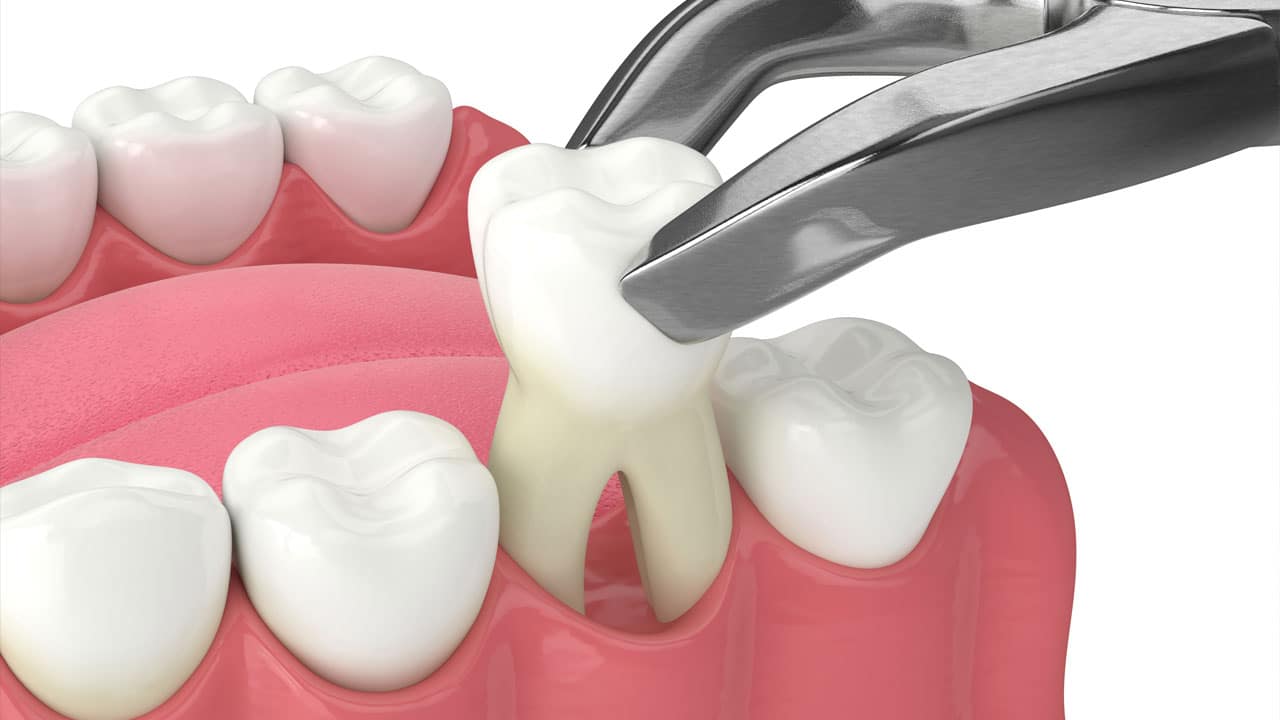Wisdom teeth removal, also known as third molar extraction, is a common dental procedure that many individuals undergo during their lifetime. While the surgery itself is important, the aftercare following wisdom teeth removal is equally crucial to ensure a smooth and complication-free recovery. In this comprehensive guide, we will explore the essential aspects of wisdom teeth removal aftercare, including pain management, diet, oral hygiene, and the importance of finding a reliable “tooth extraction near me” service to provide the necessary support during your recovery journey.
Pain Management
- Medication One of the most immediate concerns after wisdom teeth removal is managing pain and discomfort. Your oral surgeon or dentist will likely prescribe pain medication to help alleviate post-operative pain. It’s crucial to follow their instructions precisely and take the prescribed medication as directed. Over-the-counter pain relievers can also be used under your healthcare provider’s guidance if necessary.
- Ice Packs Applying ice packs to the affected area can help reduce swelling and alleviate pain. Be sure to wrap the ice pack in a cloth or towel and apply it in 20-minute intervals during the first 24 hours after surgery.
Diet
- Soft Foods In the days following your wisdom teeth removal, it’s essential to stick to a soft diet. This will help prevent any potential damage to the surgical sites and minimize discomfort. Opt for foods such as yogurt, mashed potatoes, oatmeal, scrambled eggs, and smoothies. Avoid hard, crunchy, and spicy foods during your initial recovery phase.
- Hydration Stay hydrated by drinking plenty of water. However, avoid using straws during the recovery period, as the sucking motion can dislodge blood clots and lead to complications.
- Gradual Transition As your recovery progresses, gradually reintroduce solid foods into your diet. Start with soft solids like pasta or rice and work your way up to your regular diet as advised by your oral surgeon or dentist.
Oral Hygiene
- Gentle Rinsing Maintaining proper oral hygiene is essential during the recovery process. However, you should be gentle when cleaning your mouth. Rinse with warm saltwater after meals and before bedtime to keep the surgical sites clean and free from debris.
- Brushing Continue brushing your teeth as usual but be extremely gentle around the surgical sites. Use a soft-bristle toothbrush to avoid causing any damage or discomfort.
- Avoiding Mouthwash Refrain from using mouthwash that contains alcohol, as it can irritate the surgical sites. Instead, opt for an alcohol-free, antimicrobial mouthwash recommended by your dental professional.
Activity And Rest
- Rest Rest is crucial for a smooth recovery. Avoid strenuous activities for at least the first 48 hours after surgery. Take this time to relax and allow your body to heal.
- Limited Physical Activity Avoid bending over or engaging in activities that may increase blood flow to your head, as this can lead to increased bleeding at the surgical sites.
Monitoring For Complications
- Bleeding Some bleeding is normal after wisdom teeth removal. However, if bleeding persists or becomes excessive, bite down gently on a clean gauze pad or a moist tea bag for 20-30 minutes. If bleeding still continues, contact your oral surgeon or dentist immediately.
- Swelling Swelling is also common after surgery and may peak 2-3 days after the procedure. Applying ice packs as directed can help reduce swelling. If swelling worsens or is accompanied by severe pain, contact your dental professional.
- Infection Watch for signs of infection, such as persistent pain, swelling, or the presence of pus. If you suspect an infection, seek immediate dental care.
Finding “Tooth Extraction Near Me”
One of the key elements of a successful wisdom teeth removal aftercare plan is having access to professional dental care. Your choice of oral surgeon or dentist can greatly impact the outcome of your recovery. Here are some steps to consider when searching for “tooth extraction near me” services:
- Recommendations Seek recommendations from friends, family, or your primary dentist. They may be able to suggest trusted oral surgeons or dental clinics in your area.
- Online Research Use online resources to research local dental professionals. Look for reviews, ratings, and testimonials to gauge the quality of care provided by different practices.
- Consultation Schedule a consultation with the oral surgeon or dentist you are considering. During this appointment, you can discuss your specific case, ask questions, and assess their level of expertise and professionalism.
- Credentials Verify the credentials of the dental professional, ensuring they are licensed and experienced in performing wisdom teeth removal procedures.
- Comfort and Trust Choose a dental professional you feel comfortable with and trust. Effective communication and a good rapport can make your wisdom teeth removal experience more positive.
Conclusion
Wisdom teeth removal is a common dental procedure that many individuals undergo, and proper aftercare is essential for a smooth recovery. Managing pain, maintaining a soft diet, practicing good oral hygiene, getting adequate rest, and monitoring for complications are all critical aspects of post-operative care. Additionally, finding a reliable “tooth extraction near me” service is vital to ensure you have the necessary support and expertise during your recovery journey. By following these guidelines and choosing the right dental professional, you can navigate the process of wisdom teeth removal and enjoy a quicker and more comfortable recovery.










